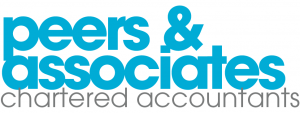Once you have formed your limited company, you need to ensure you put through the correct expense allowances to ensure you save money.
Below you’ll find a list of all the expenses you are entitled to claim.
HOME OFFICE
HOME WORKING EXPENSES
Contractors and freelancers who work from home are entitled to claim home working expenses. There are several different options through which contractors and freelancers can reimburse home expenditure:
APPORTIONED COST
For contractors and freelancers who have a room set aside in their house where more than accounts and paperwork are managed, a percentage of their expenditure can be calculated as their home working expenses. Three factors are taken into account when apportioning this expense:
– Area: what proportion in terms of area of the home is used for business purposes?
– Usage: How much is consumed? This is appropriate where there is a metered or measurable supply such as electricity, gas or water.
– Time: How long is it used for business purposes?
A limited company director owning a property rents some of the use of the property to the limited company. The director calculates the apportionment of the costs as above and charges rent to the company. The rent is shown as income in a self-assessment tax return and claims the apportionment of the costs as deductible against income. In this way a limited company director gets the same benefits as a sole trader.
NB: Although this method is effective if there are substantial running costs it will complicate your tax return and may result in a challenge from HMRC.
If you have a separate business premises within the grounds of your house, the office must be used only for business use and not for any residential use. If there is any residential use, apportionment options must be used.
A separate building used for business exclusively will be an asset of the business and so tax rules for this type of asset will apply. HMRC will view this office as being separate from the main residence and allow tax deductions. An element of care should be taken as in some circumstances capital gains tax or council tax may apply.
The purchase of the building and installing the building will be a capital asset for the business. Costs can be written off over a number of years. The service costs for getting the building to a useable condition will be allowed as costs against the profits of the limited company.
For the running costs then only the costs associated with the office can be claimed.
SIMPLE COST
An allowance has been agreed with HMRC that £208 (the equivalent of £4 per week) can be claimed by contractors and freelancers who work mainly at their client’s sites and use their home to manage business, keep accounts and search for work.
BROADBAND COST
Limited company directors can claim expenses on their broadband internet. In order for expenses to fall within the “wholly and necessarily” rules the internet connection must be established in the name of the limited company. If the broadband is taken out by you personally, only the business usage may be apportioned as an expense.
TRAVEL
ACCOMODATION EXPENSES
When working at a client’s site or travelling for business, any costs incurred through accommodation are expensable. Expenses must be “wholly and necessarily” required and “personal use” could be disallowed. This includes hotels / B&B’s for business trips – the VAT on such stays could also be reclaimed.
RENTING ACCOMODATION
If renting is a suitable alternative to staying in a hotel / B&B (for example if staying for a prolonged period of time), then rental costs can classed as a business expense. The contract for the rental should be in the name of your limited company.
BICYCLE EXPENSES
Active souls looking for a healthier way to work can claim bicycle expenses.
The bicycle must remain the property of the company and it must be used more than 50% of the time for work-related travel. Limited company directors can simply purchase a bicycle plus necessary equipment in the company name and loan it to themselves.
Where a worker uses their own bicycle for business travel a mileage allowance of 20p can be claimed.
TRAVEL EXPENSES
Limited company directors can claim expenses on travel costs. HMRC states that deduction is allowed for the full cost of travel where necessary attendance is required.
‘Necessary attendence’ refers to the journey made to or from a place that has to be attended in order for the performance of duties to be carried out. This does not include ordinary commuting or private travel.
MILEAGE EXPENSES
Contractors and freelancers can save tax by claiming tax-free mileage allowance payments for the costs of their business journeys made in their own vehicle, under the Approved Mileage Allowance Payments Scheme.
Travel should be to a temporary workplace. A ‘temporary workplace’ is a workplace attended by an employee for a limited duration of time or for a temporary purpose (for the director of a limited company this is somewhere attended for less than 24 months.)
The approved amount for mileage allowance payments = the number of miles of business travel x the rate applicable to the kind of vehicle
Car or Van: 45p per mile for first 10,000 miles, 25p per mile after that.
Motorcycle: 24p per mile.
Cycle: 20p per mile.
SUBSISTENCE EXPENSES
Subsistence expenses are business expenses incurred while travelling such as meals. If subsistence expenses are incurred while traveling on allowable business journeys, employers are able to make subsistence payments tax and NIC free.
PERSONAL EXPENSE ITEMS
This expense is intended to cover odds and ends you may require when on the road such as laundry service, a newspaper or phone calls. A director/employee can also claim £5 a night for personal incidental expenses in the UK and £10 when staying outside the UK.
MAGAZINE AND BOOK EXPENSES
If certain books and publications are required for your business (for example trade publications or reference material) you can claim the cost as an expense. HMRC bases its guidance on books and publications expenses on the principle of whether the expense is “reasonably incurred”.
When considering books and publications each expenses item should be considered individually. Before you claim expenses for books and publications make sure that:
– No-one personally benefits from the item
– That the publication is a necessity for the business and not for self-interest
Generally, books, newspapers and magazines are zero rated for VAT purposes.
MOBILE PHONE EXPENSES
Most freelancers and contractors will use a mobile phone for both business and personal use. You can claim a mobile phone purchase and running costs as a tax-deductible expense if:
– The mobile is owned by the business
– Invoices are made to that business
– The phone is provided for business use and has “reasonable” personal usage.
More information:
– HMRC do not recognise Pay As You Go top-up costs as a tax deductible expense for a limited company.
– Since 2009 Blackberrys, iPhones and other smartphones are now classified as mobile phones for the purposes of legislation.
– If a mobile phone is only used for business then all of the input VAT is reclaimable. If there is some personal usage then only an apportioned amount of VAT may be reclaimed. However, this does not apply with the flat rate VAT scheme, as there is no input VAT.
OTHER
CHILDCARE VOUCHERS
Limited company directors can claim childcare vouchers under the government’s childcare voucher scheme.
Through the childcare voucher scheme employees are able to receive up to £55 per week (£243 per month) in childcare vouchers. These are exempt from tax and national insurance contributions, and are available to each parent and legal guardian.
The scheme can be accessed:
– By registering directly with HMRC
– By using a provider who will carry out registration and administration on your behalf
Conditions of the childcare voucher scheme:
– The child must live with the employee. The scheme is available to each parent or legal guardian.
– The scheme must be offered to all employees of a company, and all must be able to claim expenses.
– Vouchers cover children up to the age of 15 and can only be used to pay registered and approved child carers (e.g. registered childminders, nurseries, after school clubs, holiday clubs etc.).
– If a relative is the child carer then they need to be registered and also care for other children who are not related.
– The childcare contract should be between the limited company and the child care provider.
EYE TESTS
HMRC states limited company directors can claim employee expenses for:
– Eye tests that are required by health and safety legislation for employees who are required to use a computer screen.
– Glasses or contact lenses that you’re obliged to provide because an eye test required by health and safety legislation shows them to be necessary for VDU work – as long as the glasses or lenses are only used for VDU work.
N.B. Expenses cannot be claimed on glasses or contact lenses that are used for everyday wear.
STILL UNSURE?
HAVE A QUESTION?
Give us a call on 0161 480 1928 and we will walk you through what you can and can’t claim.
You should contact us with your questions who will advise you in further detail about allowable tax expenses for your limited company.

